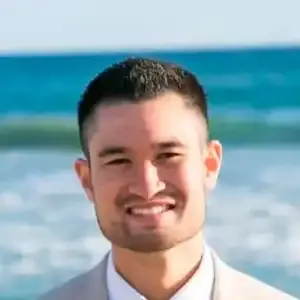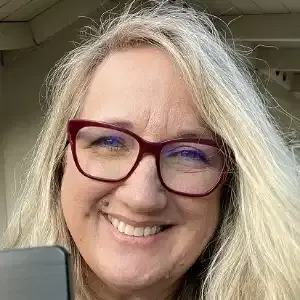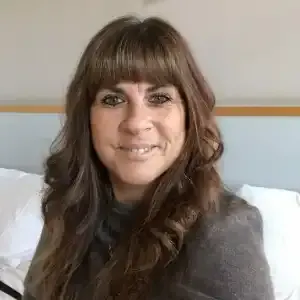






Sierra by the Sea
Verified Center
This provider's information has been quality-checked by Recovery.com's Research Team for accuracy and completeness, including center verification through appropriate third-party organizations.
Treatment Focus
This center treats substance use disorders and co-occurring mental health conditions. Your treatment plan addresses each condition at once with personalized, compassionate care for comprehensive healing.
Primary Level of Care
Offering intensive care with 24/7 monitoring, residential treatment is typically 30 days and can cover multiple levels of care. Length can range from 14 to 90 days typically.
Treatment Focus
This center treats substance use disorders and co-occurring mental health conditions. Your treatment plan addresses each condition at once with personalized, compassionate care for comprehensive healing.
Primary Level of Care
Offering intensive care with 24/7 monitoring, residential treatment is typically 30 days and can cover multiple levels of care. Length can range from 14 to 90 days typically.
Provider's Policy
Sierra by the Sea accepts most major forms of insurance. Unfortunately, we are not in-network with Medicaid, Medicare, or Medi-Cal insurance plans. Contact us today to verify your commercial insurance benefits.
Sierra by the Sea
Sierra by the Sea
About Sierra by the Sea
Nestled along the Pacific Coast, Sierra by the Sea provides a full continuum of gender-specific care. Sierra by the Sea treats adult men and women aged 18+ who are seeking treatment for substance use disorders and co-occurring mental health disorders such as PTSD, eating disorders, and depression. At all levels, teams of experienced and compassionate professionals provide treatment with a commitment to quality care and respect. As an authorized provider within the Department of Veterans Affairs Community Care Network, Sierra by the Sea provides trauma-informed, dignified treatment to those who have served the country. Additional features include evidence-based clinical services, separate residences and treatment environments for men and women, and detailed discharge planning.
Comprehensive, Quality Care
Sierra by the Sea’s gender-specific care includes residential treatment, partial hospitalization (PHP), and intensive outpatient (IOP). They also provide comfortable detoxification, basic medical care, and medication-assisted treatment if needed. Clients can expect to participate in various evidence-based and holistic therapies to guide their healing journey. Sierra by the Sea offers individual, group, and family therapies, along with experiential therapies such as acupuncture, massage, art therapy, and equine-assisted therapy.
Gender-Specific Treatment for Men And Women
Sierra by the Sea treats men and women separately, knowing each has a unique path to recovery. Gender-specific treatment also adds a layer of community and comfort to treatment. Sierra by the Sea’s men’s and women’s programs are just as comprehensive and effective, each offering the same variety of holistic and evidence-based care, plus luxurious amenities.
Seaside Housing
Sierra by the Sea lives up to its name in Newport Beach. Men and women can enjoy timeless ocean views and the unique experience of seaside living in gender-specific homes, all while receiving the quality treatment they need. Sierra by the Sea provides private or shared accommodations. Lounge areas and stocked kitchens allow clients to connect with their peers and make their stay truly special.

Center Overview
Treatment Focus
This center treats substance use disorders and co-occurring mental health conditions. Your treatment plan addresses each condition at once with personalized, compassionate care for comprehensive healing.
Insurance Accepted
Cash Pay Rates
Estimated Cash Pay Rate
Center pricing can vary based on program and length of stay. Contact the center for more information. Recovery.com strives for price transparency so you can make an informed decision.
Luxury rehab centers offer a unique blend of luxurious amenities and high-quality treatment. From private suites to gourmet dining, personal trainers to spa treatments, these facilities provide a high level of comfort and discretion.

Meet Your Care Team

Phyllis Meagher
Group Chief Executive Officer
MBA, FACHE

Chris Cummins
Director of Clinical Services
LMFT, LCADC, ACS

Gina H Tabrizy
Chief Clinical Liaison
MS, MFT

Lynette Mitchell
Director of Nursing Recovery
RN

Paul Little
Acting Medical Director
MD

Dr. Heather Wong
Physician Assistant
DMSc, MPAS, PA-C, CAQ-Psych

Teanna Vorlicek
Case Manager
RADT

Tamara Sipp
Case Manager
RADT

Alana Mcdonald
Case Manager
RADT

Mark Evens
Case Manager
RADT

Amy Lam
Clinical Psychologist
PsyD, SUDRC

Sonny Cook
Therapist
ACSW

Francisco (Frank) Fernandez-Duarte
Therapist
AMFT

Vebronia (Vee) Iskander
Clinician
M.S.

Mike Bonomo
Pastoral Case Manager
SUDCC, M-RAS-CSC,CDAAC

Julie Thorne
Director of Quality & Compliance
BSN, CADC-II

Tami Smith
Admissions Director
Registered Alcohol and Drug Technician

Cindy Wofford
Director of Business Development
CADC-II

Ms. Paige L. Centers
Director of Human Resources
MA

Brett Tambakis
Director of Utilization Management




Levels of Care








Your Care Options
Specializations
Alcohol
Using alcohol as a coping mechanism, or drinking excessively throughout the week, signals an alcohol use disorder.
Benzodiazepines
Benzodiazepines are prescribed to treat anxiety and sleep issues. They are highly habit forming, and their abuse can cause mood changes and poor judgement.
Drug Addiction
Drug addiction is the excessive and repetitive use of substances, despite harmful consequences to a person's life, health, and relationships.
Post Traumatic Stress Disorder
PTSD is a long-term mental health issue caused by a disturbing event or events. Symptoms include anxiety, dissociation, flashbacks, and intrusive thoughts.
Trauma
Some traumatic events are so disturbing that they cause long-term mental health problems. Those ongoing issues can also be referred to as "trauma."
Who We Treat
Young Adults
Emerging adults ages 18-25 receive treatment catered to the unique challenges of early adulthood, like college, risky behaviors, and vocational struggles.
Men and Women
Men and women attend treatment for addiction in a co-ed setting, going to therapy groups together to share experiences, struggles, and successes.
Midlife Adults
For adults ages 40+, treatment shifts to focus on the unique challenges, blocks, and risk factors of their age group, and unites peers in a similar community.
Professionals
Busy, high-ranking professionals get the personalized treatment they need with greater accommodations for work, privacy, and outside communication.
Approaches
Evidence-Based
A combination of scientifically rooted therapies and treatments make up evidence-based care, defined by their measured and proven results.
Personalized Treatment
The specific needs, histories, and conditions of individual patients receive personalized, highly relevant care throughout their recovery journey.
Gender-Specific
Separate treatment for men or women can create strong peer connections and remove barriers related to trauma, shame, and gender-specific nuances.
Therapies
1-on-1 Counseling
Patient and therapist meet 1-on-1 to work through difficult emotions and behavioral challenges in a personal, private setting.
Meditation & Mindfulness
A practiced state of mind that brings patients to the present. It allows them to become fully aware of themselves, their feelings, and the present moment.
Art Therapy
Visual art invites patients to examine the emotions within their work, focusing on the process of creativity and its gentle therapeutic power.
Equine Therapy
Guided interactions with trained horses, their handler, and a therapist can help patients improve their self-esteem, trust, empathy, and social skills.
Experiential Therapy
With this approach, patients heal by doing. Therapists help patients process difficult emotions to speak, using guided activities like art or dance.
Eye Movement Therapy (EMDR)
Lateral, guided eye movements help reduce the emotional reactions of retelling and reprocessing trauma, allowing intense feelings to dissipate.
Family Therapy
Family therapy addresses group dynamics within a family system, with a focus on improving communication and interrupting unhealthy relationship patterns.
Medication-Assisted Treatment
Combined with behavioral therapy, prescribed medications can enhance treatment by relieving withdrawal symptoms and focus patients on their recovery.
Conditions We Treat
Personality Disorders
Personality disorders destabilize the way a person thinks, feels, and behaves. If untreated, they can undermine relationships and lead to severe distress.
Anxiety
Anxiety is a common mental health condition that can include excessive worry, panic attacks, physical tension, and increased blood pressure.
Bipolar
This mental health condition is characterized by extreme mood swings between depression, mania, and remission.
Depression
Symptoms of depression may include fatigue, a sense of numbness, and loss of interest in activities. This condition can range from mild to severe.
Eating Disorders
An eating disorder is a long-term pattern of unhealthy behavior relating to food. Most people with eating disorders have a distorted self-image.
Obsessive Compulsive Disorder (OCD)
OCD is characterized by intrusive and distressing thoughts that drive repetitive behaviors. This pattern disrupts daily life and relationships.
Post Traumatic Stress Disorder
PTSD is a long-term mental health issue caused by a disturbing event or events. Symptoms include anxiety, dissociation, flashbacks, and intrusive thoughts.
Self-Harm
The act of intentionally harming oneself, also called self-injury, is associated with mental health issues like depression.
Suicidality
With suicidality, a person fantasizes about suicide, or makes a plan to carry it out. This is a serious mental health symptom.
Substances We Treat
Alcohol
Using alcohol as a coping mechanism, or drinking excessively throughout the week, signals an alcohol use disorder.
Benzodiazepines
Benzodiazepines are prescribed to treat anxiety and sleep issues. They are highly habit forming, and their abuse can cause mood changes and poor judgement.
Co-Occurring Disorders
A person with multiple mental health diagnoses, such as addiction and depression, has co-occurring disorders also called dual diagnosis.
Cocaine
Cocaine is a stimulant with euphoric effects. Agitation, muscle ticks, psychosis, and heart issues are common symptoms of cocaine abuse.
Drug Addiction
Drug addiction is the excessive and repetitive use of substances, despite harmful consequences to a person's life, health, and relationships.
Heroin
Heroin is a highly addictive and illegal opioid. It can cause insomnia, collapsed veins, heart issues, and additional mental health issues.
Methamphetamine
Methamphetamine, or meth, increases energy, agitation, and paranoia. Long-term use can result in severe physical and mental health issues.
Opioids
Opioids produce pain-relief and euphoria, which can lead to addiction. This class of drugs includes prescribed medication and the illegal drug heroin.
Languages
Aftercare
Care Designed for Your Needs
Personal Amenities
Amenities
Special Considerations
Gender-specific groups
Patients in gender-specific groups gain the opportunity to discuss challenges unique to their gender in a comfortable, safe setting conducive to healing.
Healthy Meals are provided
Great food meets great treatment, with providers serving healthy meals to restore nutrition, wellbeing, and health.






